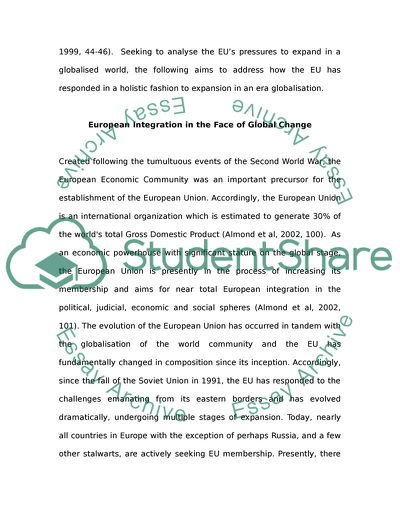Cite this document
(The EU Expansion Challenges Essay Example | Topics and Well Written Essays - 1500 words, n.d.)
The EU Expansion Challenges Essay Example | Topics and Well Written Essays - 1500 words. https://studentshare.org/politics/1559162-how-successful-is-the-eu-in-providing-a-regional-response-to-the-problems-arising-from-globalisation
The EU Expansion Challenges Essay Example | Topics and Well Written Essays - 1500 words. https://studentshare.org/politics/1559162-how-successful-is-the-eu-in-providing-a-regional-response-to-the-problems-arising-from-globalisation
(The EU Expansion Challenges Essay Example | Topics and Well Written Essays - 1500 Words)
The EU Expansion Challenges Essay Example | Topics and Well Written Essays - 1500 Words. https://studentshare.org/politics/1559162-how-successful-is-the-eu-in-providing-a-regional-response-to-the-problems-arising-from-globalisation.
The EU Expansion Challenges Essay Example | Topics and Well Written Essays - 1500 Words. https://studentshare.org/politics/1559162-how-successful-is-the-eu-in-providing-a-regional-response-to-the-problems-arising-from-globalisation.
“The EU Expansion Challenges Essay Example | Topics and Well Written Essays - 1500 Words”. https://studentshare.org/politics/1559162-how-successful-is-the-eu-in-providing-a-regional-response-to-the-problems-arising-from-globalisation.


